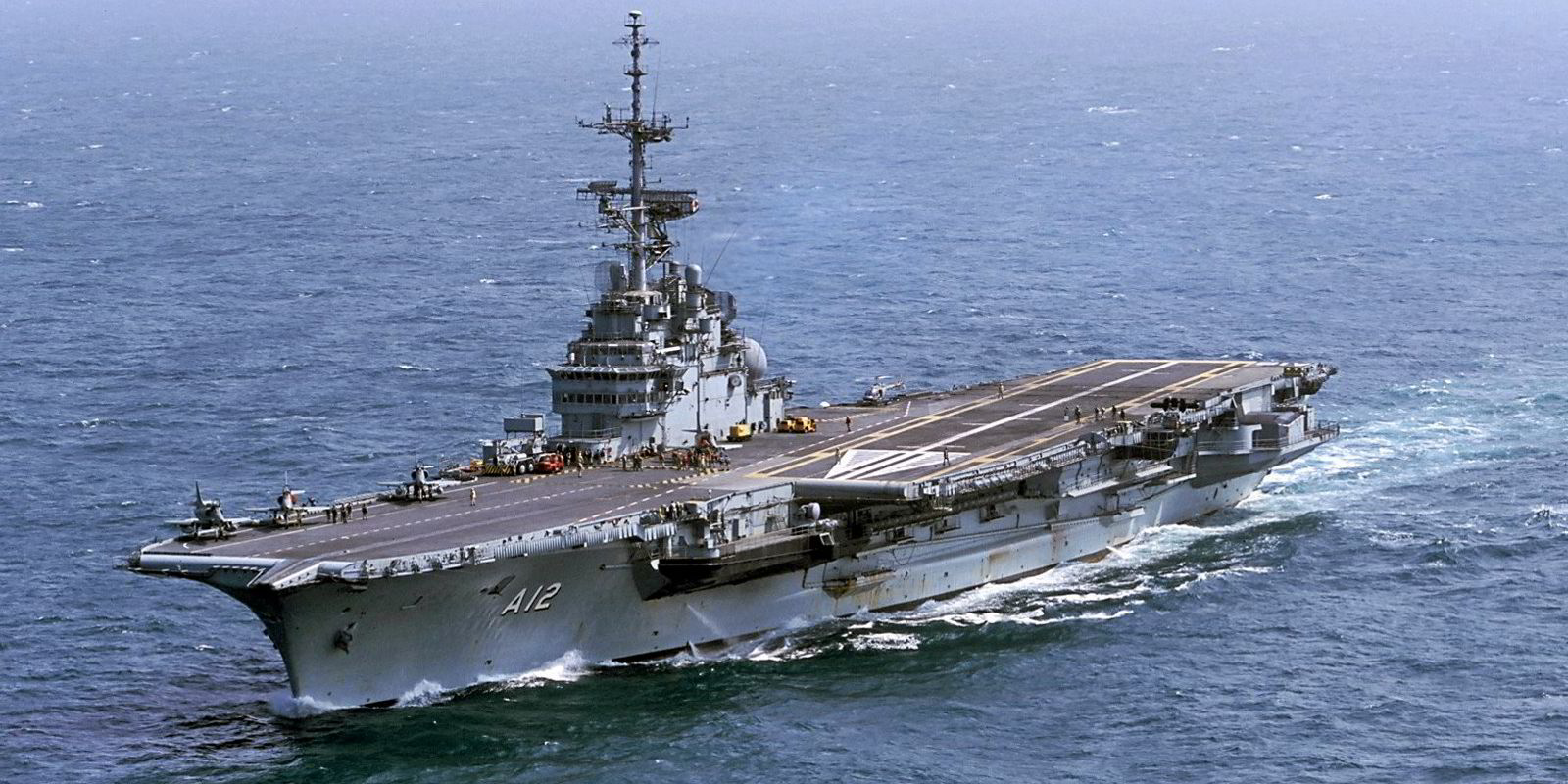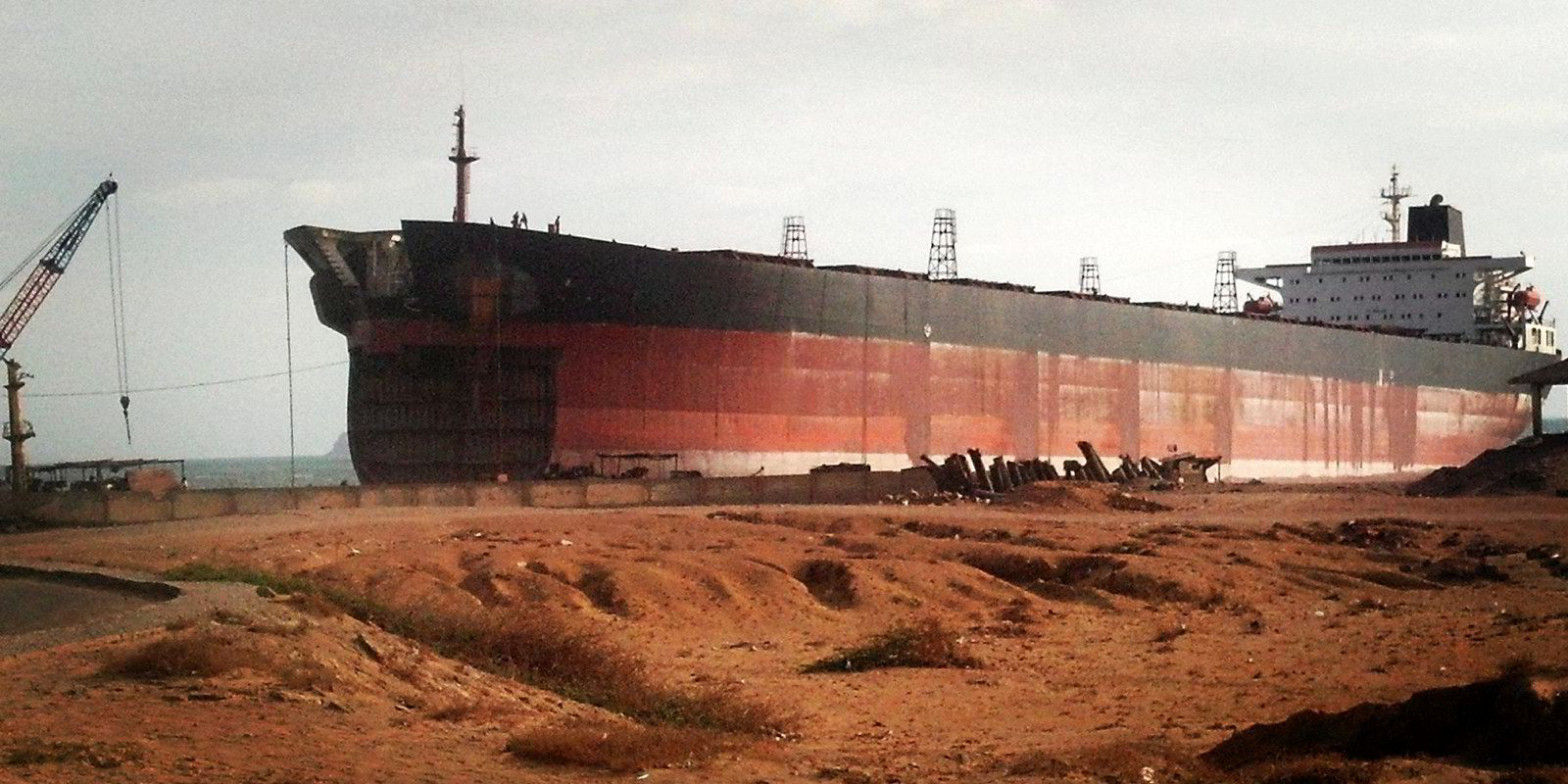The problem of unintended regulatory consequences in ship recycling made a dismally spectacular splash with the scuttling of a Brazilian aircraft carrier.
The saga is a naval one, but the essential issues face merchant and passenger shipping regularly: an incomplete and sometimes misguided regulatory regime for recycling contributes to the very outcomes the rules are meant to prevent.
Ships are sold into bogus or unlawful trades so that owners can wash their hands of the consequences. Or they are left lying in pieces on the seafloor.
Now, voices in the ship-breaking industry are calling for the authorities to take charge and prescribe solutions before such foreseeable crises happen.
The answer, say frustrated ship recyclers, is an approach that provides for the end of the vessel’s life early on, one in which the International Maritime Organization and other authorities look ahead to predictable crises and specify an approach to be taken, instead of just forbidding and criminalising.
“I call for a collaborative approach,” said Dr Anand Hiremath, chief compliance officer at Global Marketing Systems (GMS), the world’s largest cash buyer of ships for recycling.
“Once a ship is built, we already know that a scrapping will have to take place,” he told TradeWinds. “So not a single ship should end up this way.”
The slow-motion environmental tragedy of the Sao Paulo (ex-Foch, commissioned 1963) reached its inevitable end on 3 February, when Brazil scuttled the leaky, long-idled, asbestos-chocked ship in the Atlantic Ocean.
The sad saga has many twists and can only be summarised here.
After struggling for a decade with a proper approach to disposing of the former French Navy vessel or restoring it for use as a museum, the Brazilian Navy obtained a court order in 2021 requiring scrapping in a yard qualified under the European Union Ship Recycling Regulation, and a sale not to a single-purpose entity owned by a cash buyer but directly to a qualified yard that could be held financially responsible.
But while the vessel was under tow to Turkey, controversy flared. NGOs drew attention to Grieg Green’s inventory of hazardous materials (IHM), along with the information that the sister ship Clemenceau had contained far more asbestos than reported in the Sao Paulo inventory, and a caveat from Grieg Green about the limits to its IHM information.

“There were large parts of the ship we were not allowed to access,” Grieg Green chief executive Pia Meling told TradeWinds. “Surveyors were not allowed in.”
Turkey banned the ship after public protests.
Once back in Brazilian waters, it was towed in circles for months as it began to take on water.
Citing fears that the Sao Paulo would pollute the coast if returned to its anchorage, the Brazilian Navy scuttled it 350 km offshore at a depth of 5,000 metres.
That was not only an unnecessary insult to the environment but also a waste of steel and other resources, Hiremath said.
He believes Turkish or other recyclers would have been ready to remediate safely whatever amount of asbestos they found.
At an early stage, all the major cash buyers including GMS were interested in the job, but their proposals were not relevant in the end.
“In 2023, the technology is in place in Turkey to remove hazardous materials. And even if the ship had been beached, that would have been better than just dumping it at sea,” Hiremath added.

The problem is not insufficient regulation. There were plenty of rules to prevent the debacle, which violated the Basel Convention (export of hazardous waste), the Stockholm Convention (persistent organic pollutants) and the London Convention (marine dumping).
Consultation by a body with positive authority to act is what was missing.
“Nobody wants to work together. That’s where the problem lies,” said Hiremath.
He and others believe a committee of experts drawn from cash buyers, scrapping yards, owners, governments and environmental and welfare NGOs could be empowered to review proposals and dictate a solution.
Meling also expressed interest to TradeWinds in the suggestion of a committee and called attention to another looming recycling crisis for Brazil: the lack of scrapping facilities there to handle the expected large volume of offshore rigs to be decommissioned.
Uday Yellapurkar, founder of green cash buyer start-up Elegant Exit, is another who believes there should be a committee proposing sustainable solutions, rather than just forbidding unsustainable ones.
“If the law only says what cannot be done, you will find cases like this,” he said.




